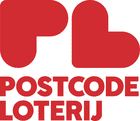September 25, 2025
Ethiopia: survivor leaders turn an ancient tradition into a path for connection and healing
Survivor-led innovation in action
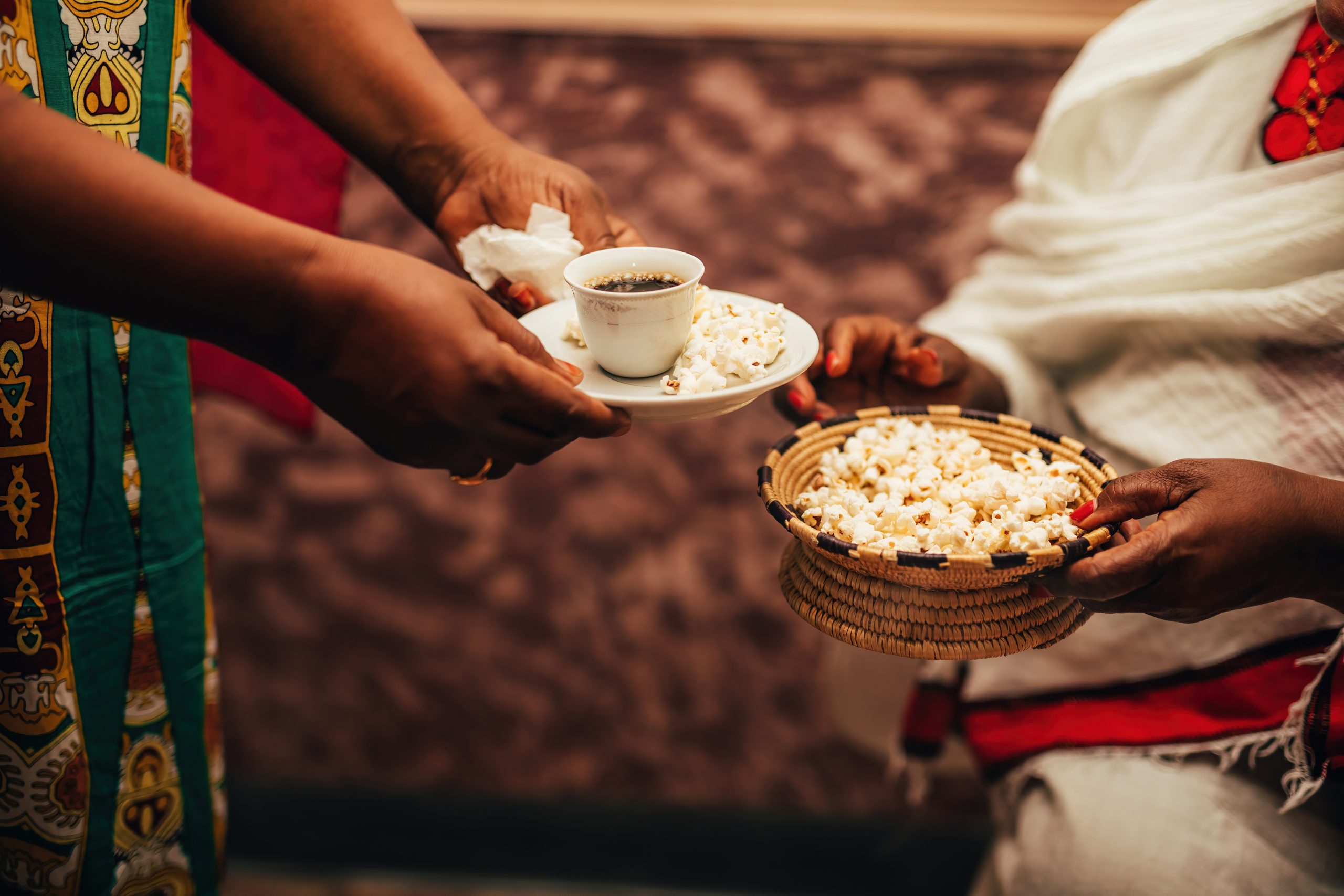
Photo: Adobe Stock
In a quiet circle of women in the northern Ethiopian city of Shire, the hiss of roasting beans fills the air. Yara’s (*) hands move with intention as she roasts the beans. Incense swirls, popcorn crackles, and the earthy aroma of coffee signal more than just a gathering. It is the creation of a healing space and an act of resilience.
Survivor activists in Ethiopia have begun leading traditional coffee ceremonies, reclaiming this ancient cultural practice as a space for healing, solidarity, and activism. Continue reading to learn how survivor-led networks in Ethiopia are making a powerful difference in their communities – and what’s next for them.
The path to healing for survivors of conflict-related sexual violence in Ethiopia
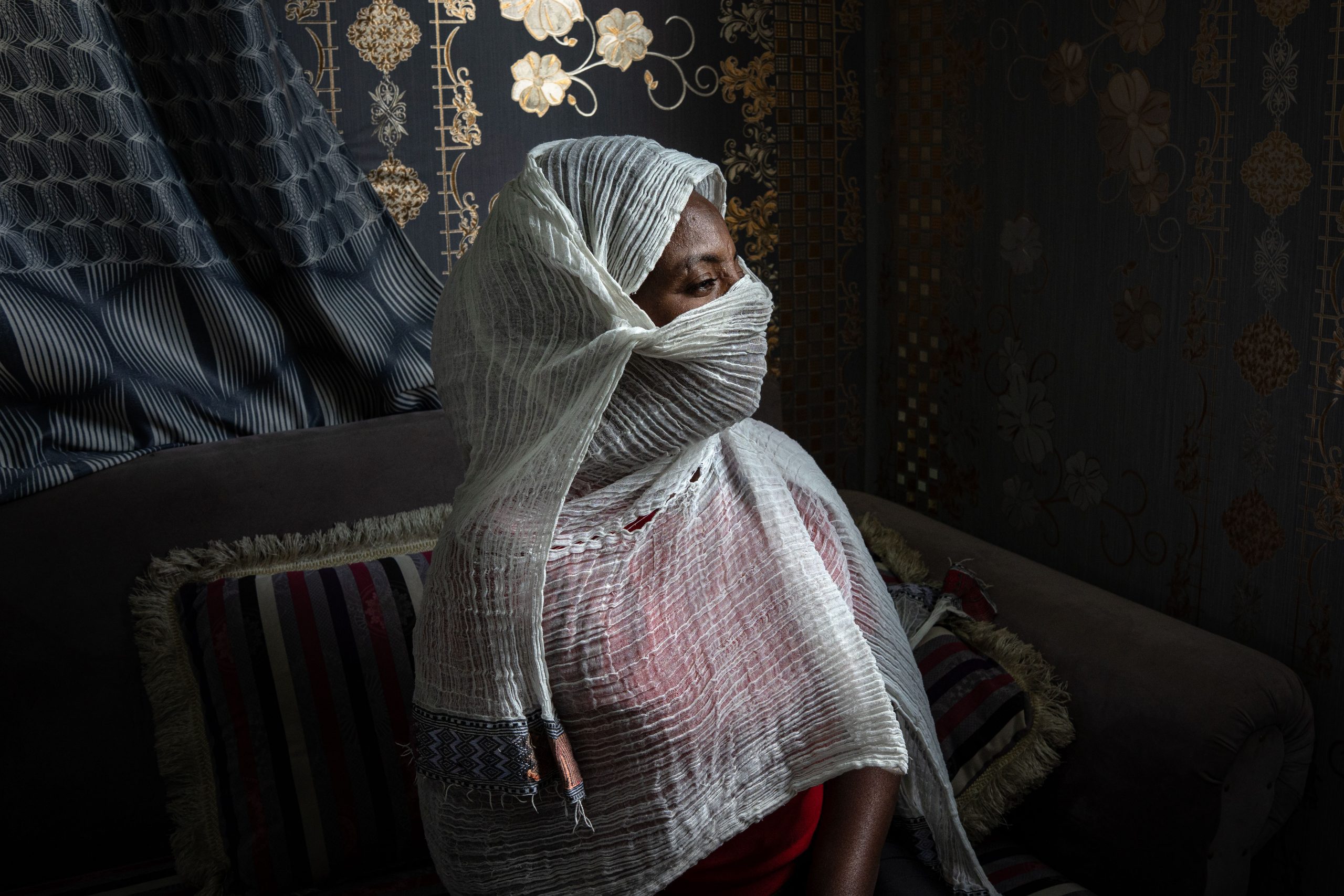
Photo: Ximena Borrazás
In November 2020, election tensions in northern Ethiopia sparked a wider war between Ethiopian federal forces (and their Ethiopian and Eritrean allies) and Tigrayan forces. For nearly two years, civilians suffered extreme violence, including widespread sexual violence used as a weapon of war against women and girls, men and boys. Health facilities were destroyed and looted, leaving survivors with little access to essential care.
Survivors supported by the Mukwege Foundation in Tigray report facing numerous barriers to care: high costs, long travel distances, medicine shortages, distrust of public services, and mistreatment in care settings.
Cultural pressures, stigma, and fear of social exclusion also discourage disclosure of sexual violence.
“Many victims remain silent about what happened to them, out of shame and fear of being ostracised by the community,” explains our Executive Director, Katrien Coppens, in recent media coverage on Tigray, where reports indicate that tens of thousands of women, girls, and men may have been affected.
This silence, reinforced by fear and stigma, makes it even harder for survivors to seek care.
Supporting the Justice and Peace for Tigrayan Women and Girls Network
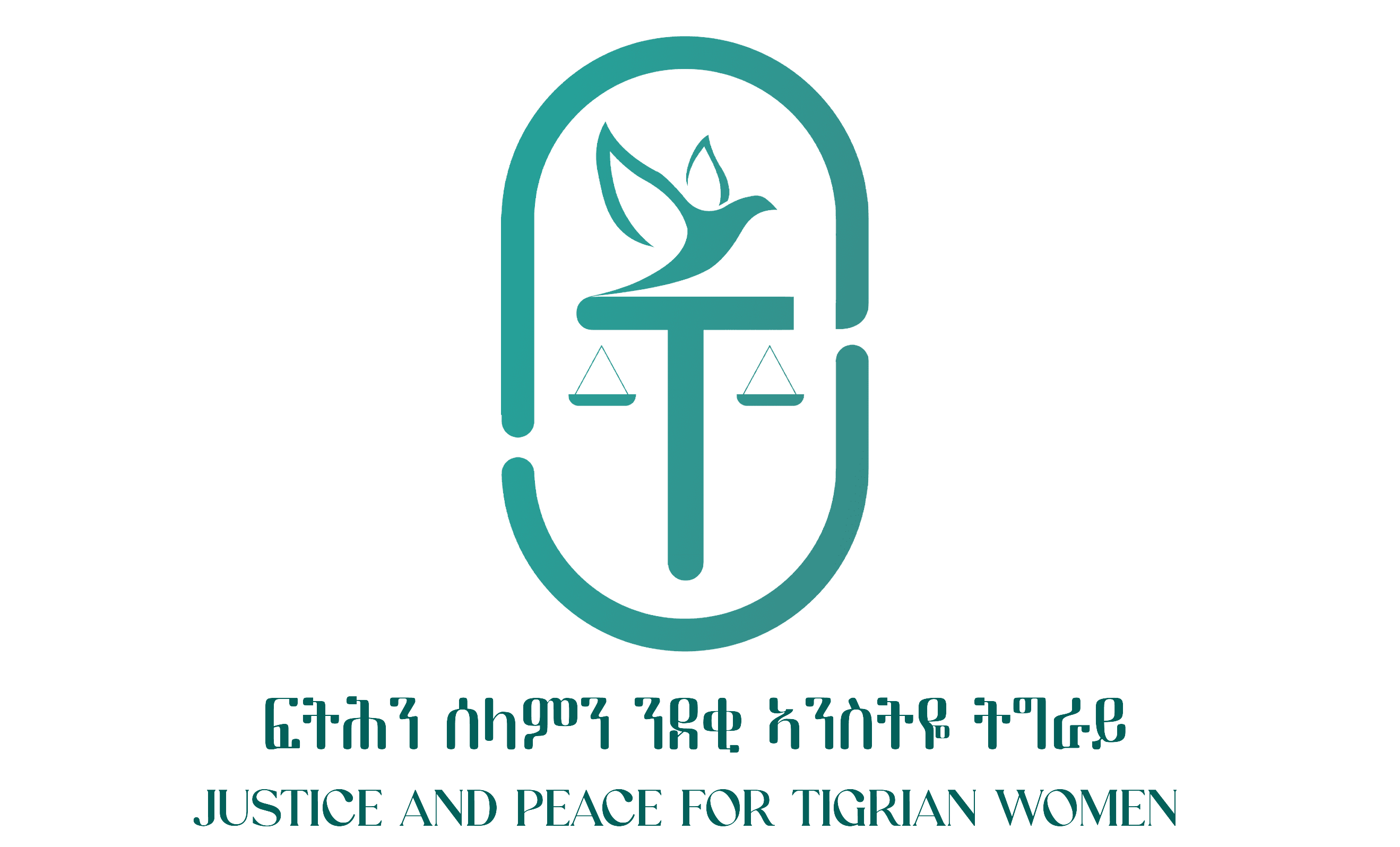
Logo of JPTW
In 2022, Help Generation (formerly Imagine Ethiopia) and the Mukwege Foundation partnered with the International Centre for Transitional Justice to strengthen the participation of survivors of conflict-related sexual violence in Ethiopia’s transitional justice process by initiating and accompanying survivor networks.
For this project, we have supported the creation of a survivor network in Ethiopia’s Tigray region, known as the Justice and Peace for Tigrayan Women and Girls Network — a network that brings together 75 survivors of conflict-related sexual violence from Mekelle and Shire in Tigray.
The survivors, aged 30 to 45, are mostly displaced, and primarily single mothers – many with missing or deceased partners, and some raising children born of wartime rape.
To date, the network has:
- focused on facilitating access to medical, psychosocial and socio-economic support for its members. They are working to develop their network as both a safe space and a platform for expression, supporting each member’s healing journey.
- built knowledge and skills on key issues such as transitional justice, combating stigma, and engaging with relevant stakeholders to support survivors’ reintegration into society.
- committed to participating in public events and organising community awareness events to inform their communities about survivors’ rights and needs.
Survivors leading change
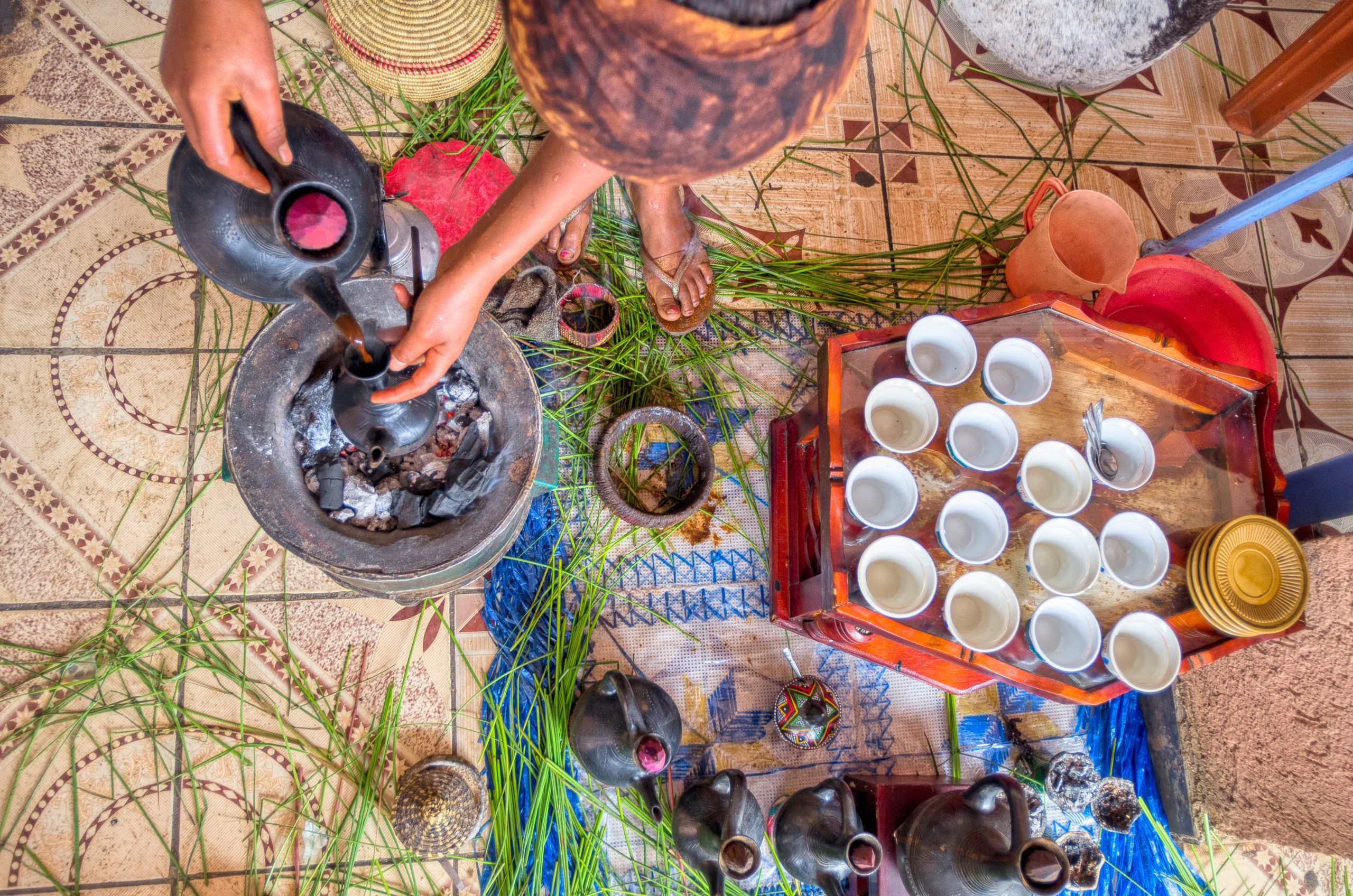
Photo: Adobe Stock
The goal of conducting coffee ceremonies with newly identified survivors originated from the network members themselves. Drawing from their heritage, they view the Ethiopian coffee ceremony not merely as a cultural tradition, but as a powerful way to foster connection, strength and community among survivors who are hesitant to share their experiences.
They source the raw beans, carefully roast them over an open flame, and prepare three rounds of coffee, according to their traditions – each cup offered as a gesture of continuity, presence, and respect.
Over these three rounds, network leaders write down the concerns that newly identified survivors wish to share with them. They listen to their stories and problems, inform them about the work of their network, give them encouragement and hope, and connect them to essential services in the area.
The deliberately slow pace of the ritual reminds those who are present in these trust-building circles that healing, like coffee, takes time and care.
Laying the foundations for greater impact
“Being in a network has been good for us. Before I was nervous, now I understand myself better. I am starting a new life. I am not only leading myself but also others. I am a voice for women in Tigray. Before I kept silent, but now I can be the voice for others.”
As part of its survivor-centred accompaniment of the network, the Mukwege Foundation has provided for income-generating activities. These small-scale businesses range from poultry and coffee sales to soft drinks and snack stalls.
The profits being generated from these activities are being collectively utilised by the network to purchase the coffee beans needed to host and sustain the coffee ceremonies.
In parallel, the Mukwege Foundation has given training to the survivor network on the principles of survivor-centred holistic care and guidance on engaging with their peers so that they can carry out their work confidently.
Next steps
The network currently includes 75 members, but is aware of at least 1,600 more survivors. Looking ahead, its leaders hope to hold these ceremonies regularly to reach and support survivors who have not yet been identified. They are exploring partnerships with fair trade coffee companies to source beans, and seeking training in therapeutic practices to ensure these ceremonies serve not only as outreach but also as a meaningful tool for healing.
The simple yet profound act of sharing coffee continues to remind communities in northern Ethiopia that survivors of conflict-related sexual violence are defined not by the harm they endured, but by the strength and resilience they bring to those around them.
Thank you
We thank all members of the Justice and Peace for Tigrayan Women and Girls Network for their unwavering courage and active engagement. We also thank our implementing partners, Help Generation and the International Centre for Transitional Justice (ICTJ), as well as the Dutch Ministry of Foreign Affairs, for their continued support of our work in Ethiopia.
(*) Name changed for confidentiality reasons.






